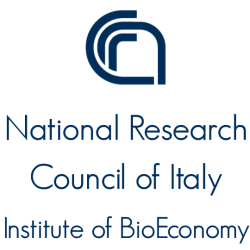[duration of the project 01.11.2021 to 31.03.2024]
Field: Higher Education
Financed by: Erasmus+ programme of the European Union
National agency of the applicant organisation: Nationale Agentur für EUHochschulzusammenarbeit im Deutschen Akademischen Austauschdienst (NA-DAAD)
Budget: 377,436.00 €
Summary
Forest operations have the tendency to replace traditional specialization with standard protocols, with little regard for local diversity in environment, climate, and societal needs. The consequence is increasing damage to stands and soils and declining knowledge about traditional solutions that have been developed from experience. The project acknowledges the large and valuable variety of local conditions and promotes a better sensitivity to technological diversity. To reach this goal, the large capital of knowledge available in Europe should become available to forest owners, contractors, scientists, and students.
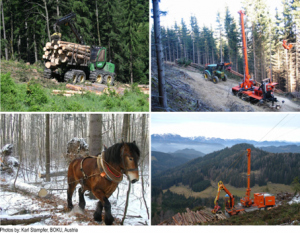
Lectures and a glossary with facts and methods will be the knowledge base, where the most typical technological sub-processes for wood harvesting will be presented and assessed. Tutorials will explain how to structure and express different technological processes, to assess them under ecological, economic, and societal criteria and to reach a final decision about which one to implement under each specific condition. For each sub process a scientific audio-visual will show the tool or machine, its use and the effects on the environment and the workers, its expected productivity and the resulting costs. A platform will ensure organisation and coordination of complex information. In an intuitive, modular way users will be able to identify those sub-processes that fit their local conditions, and combine them into a complete work process. User will get suitable information to assess the selected process and to find the optimal solutions for their individual needs and objectives.
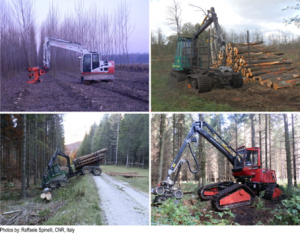
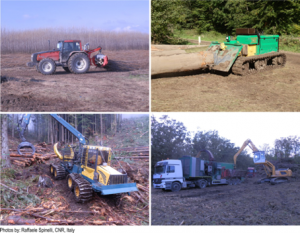
With the help of teaching modules, the content will be made available to the students as an e-learning course with exercise and examination units. The course will be recognized by forest faculties in Europe and integrated with 10 ECTS in the forest master curriculum. In addition, it can also be used as a further training unit for forestry practitioners.
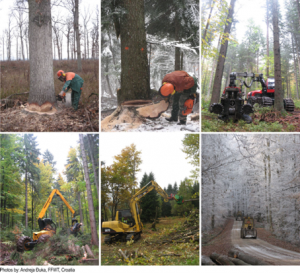
The Technodiversity project addresses technological diversity by gathering a common basis of technological knowledge and increasing the sensitivity for diversity in forest engineering. It aims to bring together and make generally available the existing knowledge in forest operations that is scattered across various European countries. It will function as a bridge between different regions of Europe as well as between different generations of students, practitioners, scientists and academics. An e-learning course will be installed to support mobility for students on master’s level of education, suitable for implementation into forestry based curricula.
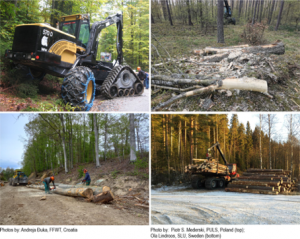
Erasmus+ programme Action Type KA220-HED – Cooperation partnerships in higher education
Members of the project team:
- Dresden University of Technology, Germany (leader), prof. Jöern Erler, PhD, Christina Spirrow, M.A. and Clara Bade, BSc
- Poznań University of Life Sciences, Poland, prof. Piotr S. Mederski, PhD
- National Research Council, Italy, Raffaele Spinelli, PhD and Marco Simonetti, MSc
- Transilvania University of Brașov, Romania, prof. Stelian A. Borz, PhD
- University of Natural Resources and Life Sciences, Austria, prof. Karl Stampfer, PhD
- Swedish University of Agricultural Sciences, Sweden, prof. Ola Lindroos, PhD and Mikael Lundbäck, PhD
- Faculty of Forestry and Wood Technology University of Zagreb, Croatia, assist. prof. Andreja Đuka, PhD and assist. prof. Ivica Papa, PhD
- Technological Institute FCBA, France, Nathalie Mionetto, PhD and Philippe Ruch, forest research engineer

